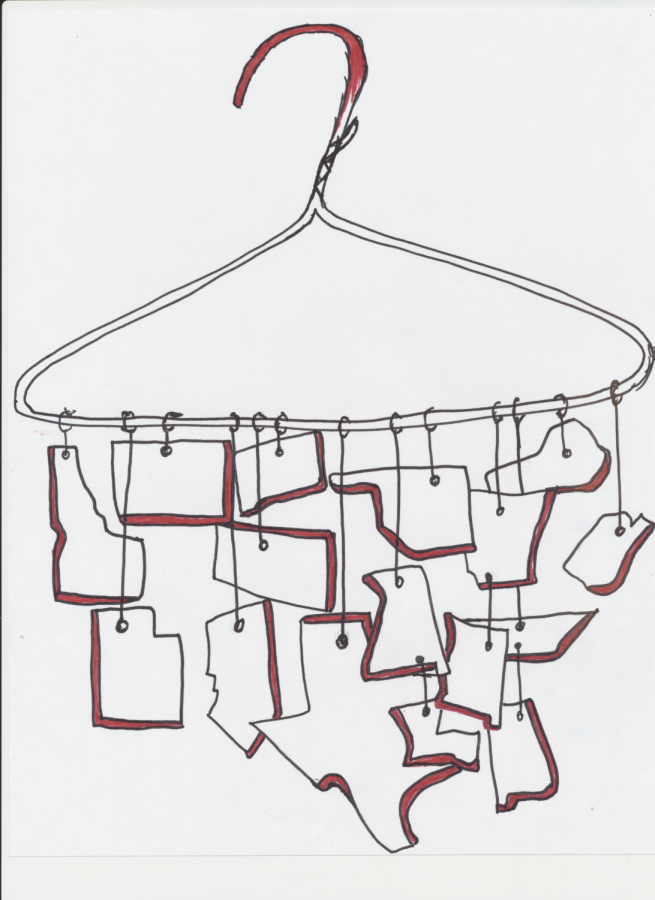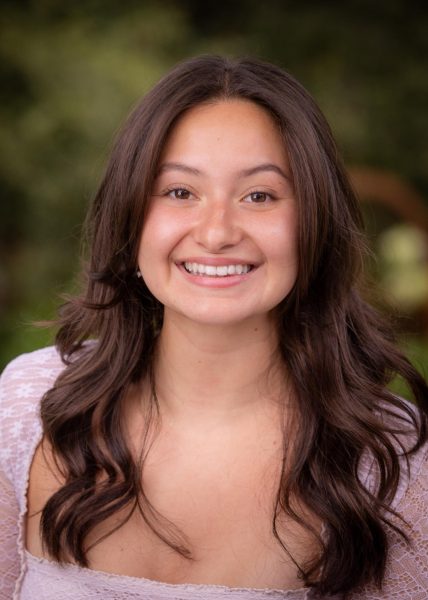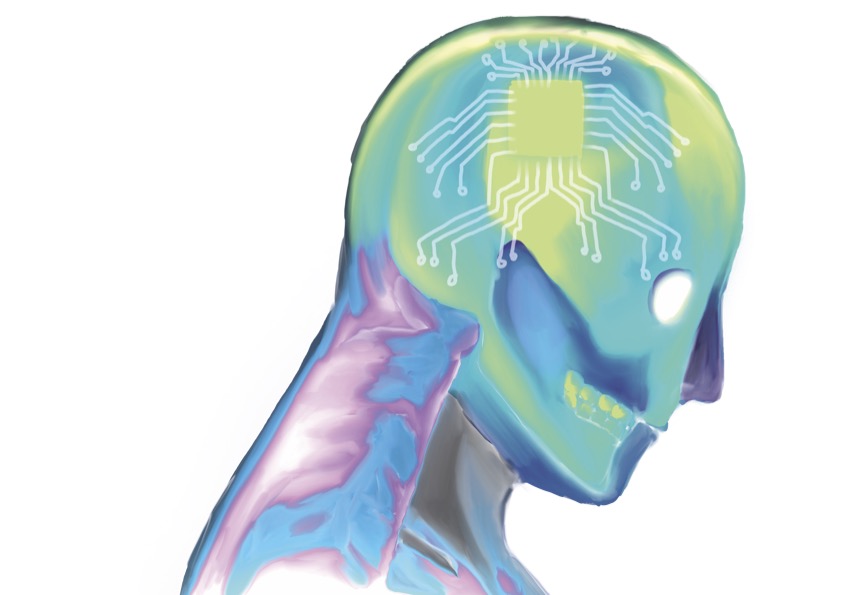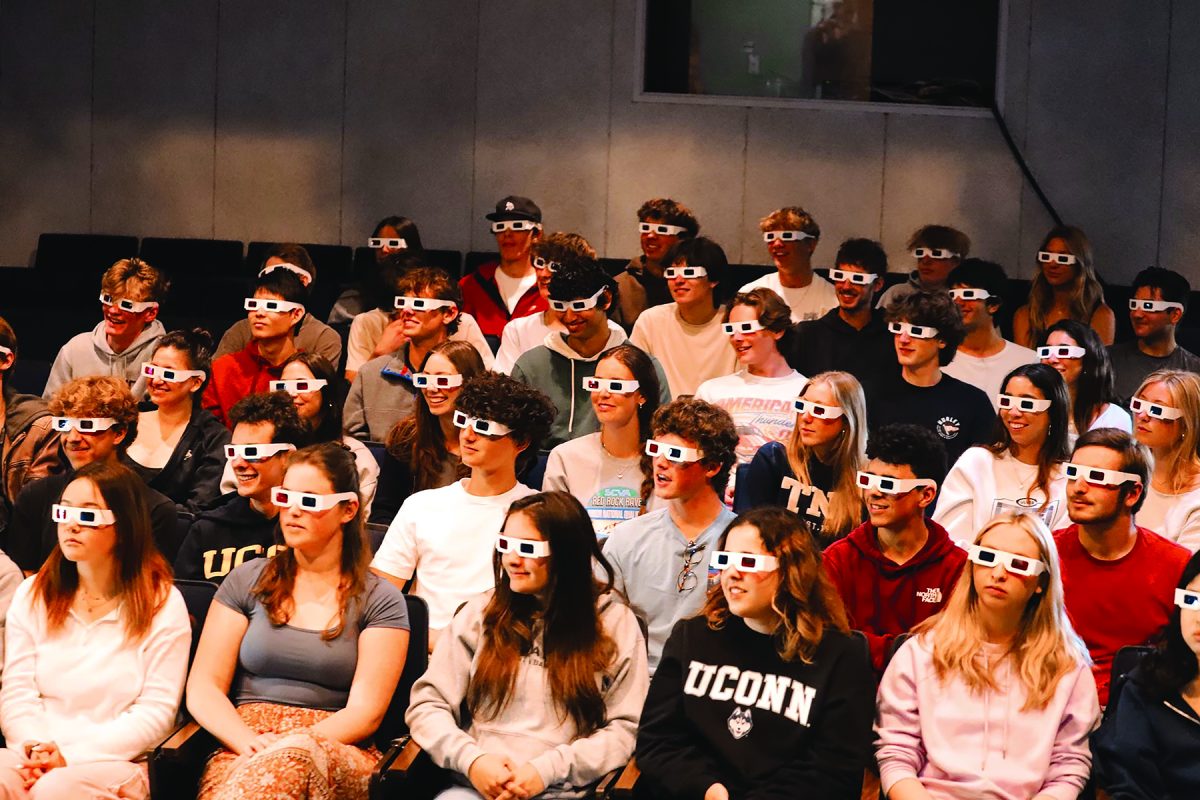Girls Just Want to Have Fun…damental Rights
Roe v. Wade was overturned by the U.S. Supreme Court making it possible for individual states to restrict or outright prohibit abortion rights.
January 5, 2023
In our November 2021 issue, writers discussed the tensions between the women in Texas and the Texas legislation, the fear that women in Texas were immersed in, and the hypothetical dystopia that our country could become if the safety net that was Roe v. Wade fell.
And now we are here. Still shocked even months after the constitutional right to abortion was overturned. Solemn over the restricted life that is now befalling a good amount of women in our country.
We are scared for the future of women’s liberty in America.
In 1973, the U.S. Supreme Court ruled that women have a constitutional right to abortion and privacy, in the landmark ruling Roe v. Wade. Women born today have less rights than the generation before them, with over half the country having lost the right to choose.
Without the protection of federal law, states can ban abortion opportunities within their borders if they wish.
As California citizens, we reside in a state with abortion freedom. We must protect women and care providers from civil liability imposed from other states.
There is no escaping the law for women living in Alabama, Arkansas, Arizona, Florida, Georgia, and Idaho, where having an abortion is now considered illegal.
State and federal abortion restrictions can result in maternal mortality. The risks of dying from pregnancy-related causes are much greater than the risks of dying because of a legal abortion.
What if the pregnancy is a result of rape or incest? Are women expected to keep the child? To live with the reminder of the violence that overturned their lives?
When a woman decides she cannot handle having a child, that she cannot give a child a safe life, or in the extreme when it is a life or death decision, women should have that right over their bodies.
The ideals of Freedom of Speech and Freedom of Religion have morphed into the “Freedom” to remain restrained for the women of America.
We shouldn’t have to protest in the streets, yelling, crying, and pleading to the government to give us back the right to make our own decisions.
We shouldn’t have to drive thousands of miles over state borders to ensure the safety of one’s life. We shouldn’t lose our voice and our choice.
Did the Supreme Court have women’s rights in mind when it overturned Roe v. Wade or was it focused on politics, party, and religion? The abolishment of abortion rights goes against the very idea of universal equality that America is supposed to represent.
Christianity is pro-life’s divinity. But every woman in America shouldn’t have to conform to Christianity’s beliefs when their life is on the line. Discussions of the most intimate nature—the choice to terminate a fetus—have turned into a political battlefield used as campaign tools and talking points.
A woman’s right to make an extraordinarily personal and important decision about her body and future is being disputed by the government—in a battle to have control of women’s personal decisions. As writers, we are not saying that we don’t understand the alternative side to our argument. People have the right to practice their own religion and to have their own opinions. But that’s just it.
Everyone has their own opinions and beliefs, but when those opinions are challenged and enforced by laws, is it fair for those who disagree.
Abortion is an issue that is widely debated, and rightfully so, because it is a serious decision with both the child and the mother’s life to be considered.
But because there is no longer a choice between one side or the other, our country has transformed into a divisive place for women.
All that pro-choice activists are saying is that women should have the right to choose their own fate.
To determine the future of their own bodies and lives. To simply make a decision for themselves.
Most women understand pregnancy’s realities and the responsibilities accompanying it, which are complex. Many women are not at the right age, time in their life, economic status, health status, or relationship status to handle carrying a child for nine months, dealing with all the appointments, medications, bills, hormones, etc., that come along with it.
Meeting the basic needs of a child include being able to provide a child with medical care, housing, education, and food.
In addition, there’s a child’s emotional and physical needs that need to be considered and protecting their child from harm and abuse.
The women most affected by the Roe v. Wade decision are women of color Black, Hispanic, lower, and working-class women who are already fighting to meet their necessities. A college student who wishes to remain anonymous said,
”If the U.S. government truly cared about people’s lives, and we’re ‘pro-life,’ they would ensure that no homeless people were living on the streets or in shelters.
It would find safe, loving, nurturing, happy homes for the millions and millions of children in the foster care system in the United States.”
This woman also spoke about her experience when she received an abortion days before Roe v. Wade was over- turned.
She was harangued endlessly by staff at the clinic. She was told that the child could have a happy life and that she didn’t need to do this.
But as a student, she could barely provide a life for herself, let alone a child, and she wasn’t ready to be a parent.
Every woman deserves the right to choose what is best for her.
The overturning of Roe v. Wade not only took the freedom to choose for some women, but it left us with more questions than answers.
Did the Court’s decision to overturn Roe v. Wade take into consideration the thousands of women who disagree and will be adversely affected?
The abolishment of abortion rights goes against the idea of universal equality that America is supposed to represent.








